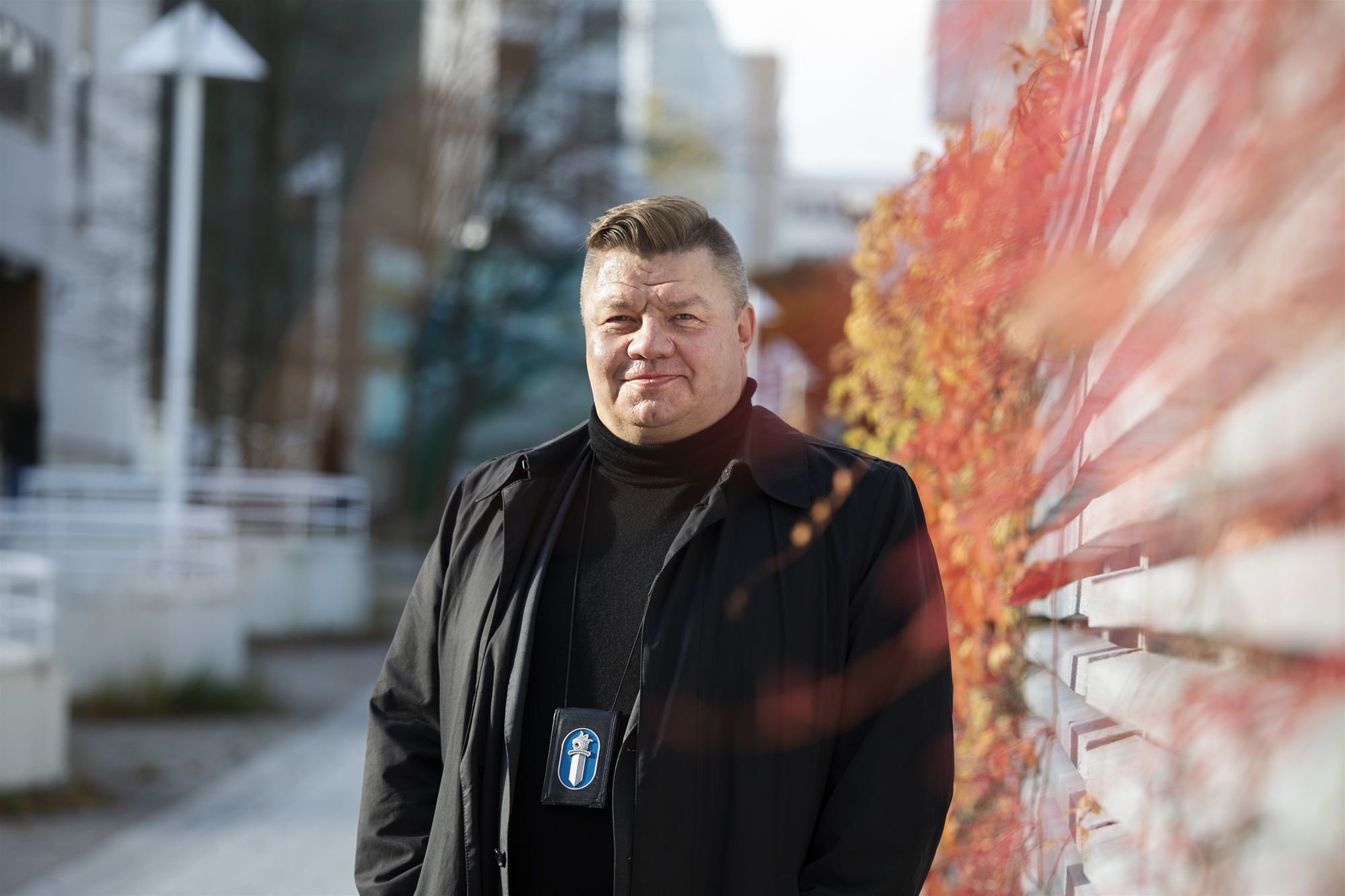Breadcrumb
Navigation Menu
Uratarina Mirka Törhönen en
Crime prevention across national borders
Detective Sergeant Mirka Törhönen
National Bureau of Investigation, analyst and Police Officer of the Year 2024
Detective Sergeant Mirka Törhönen knows how changes in the operational environment open up new career opportunities. He currently works as an operative analyst at National Bureau of Investigation.
I started my career as a police officer in 1991, when I joined the Helsinki City Centre Police District as a constable intern. That year marked significant events in the world history, as the Soviet Union collapsed and the borders to the East opened up. Now it was possible to move across the border. The Cold War Era came to an end and, as a result of a chain of events, the Baltic countries gained independence. I find that these historical events had a greater impact on my later career than I could have then imagined. The opening up of national borders, also for crime, has been reflected in my work since the very beginning.
A change in the operational environment guided the career path
As a criminal investigator, I started my analysis work on property crime at the end of the past millennium. The operational environment changed significantly again in 2008 when the Schengen area extended to the Baltic States and Eastern Europe. Property crime became mainly cross-border crime, as movement through border controls became easier. I think that changes in the operational environment should be seen as opportunities, as challenges to which one wants to respond by doing one's best. I believe that creativity and finding new operational models unfold their best potential when a change occurs.
What I find interesting about the police profession is that world events are reflected in the work. Issues that come up in the course of duties also give signals about new phenomena. This is why it is important to know history to understand what is happening in the present or what the different events are based on. During my career, I have been involved in building analysis functions and international networks for authorities. The highlights of my work career have been the role of project manager in a cross border crime project, and of the person responsible for operational activities in the EMPACT OPC project.
It's been 33 years since I started as a police officer. Of that time, I worked for 19 years in the local police and now I have been employed by the National Bureau of Investigation for 14 years. Working at the National Bureau of Investigation has enabled my work to expand from regional to national level. Working at national level in the National Bureau of Investigation has provided me with opportunities for personal and operational development. When I look at what has happened in the world over these years, I can only conclude that the operational environment has changed a great deal. Contacts across the Eastern border are almost non-existent, and artificial intelligence and robotics are part of everyday work. Changes take place very quickly, creating new kind of pressure for analysis work.
The role of analysis in crime prevention
Establishing international contacts and developing operational models are important in preventing, detecting and investigating crime. High-quality analysis costs money, but in my opinion, it is a price worth paying. Working as an analyst, I support day-to-day situational awareness and intelligence-led policing. Being an analyst allows me to continuously develop my professional skills and share my knowledge with other stakeholders working in the field of security.
Working for Europol as part of the team of National Experts has given a great aspect to my work. I have had the opportunity to work as an analyst on a number of international organised crime investigations. This work is carried out partly at national level, but in an international context. Finland sends inquiries related to serious and organised crime, and we reply with data from Europol's databases and subsequent conclusions of related analyses. Designating a Finnish expert to Europol is a win-win solution for all parties, because National Experts know and understand the situation in their home countries. With my experience, I have a better understanding of the nature of the inquiries and awareness of the type of data and analyses useful to Finnish law enforcement authorities.
We reply to inquiries in a comprehensive manner and, as National Experts, we know how to combine relevant information so that the reply is tailored to the needs of the requesting party. Replies sent from Europol closely supports national criminal investigations and situational awareness. For example, cyber-enabled fraud is often cross-border crime, and good results have been achieved in preventing and investigating it through criminal investigations supported by Europol.
I hope that you find my work career as an example of how to face threats and challenges in the line of one’s duties. We should all think about how our contribution can be used to protect Finland from phenomena that pose a threat to its security.

